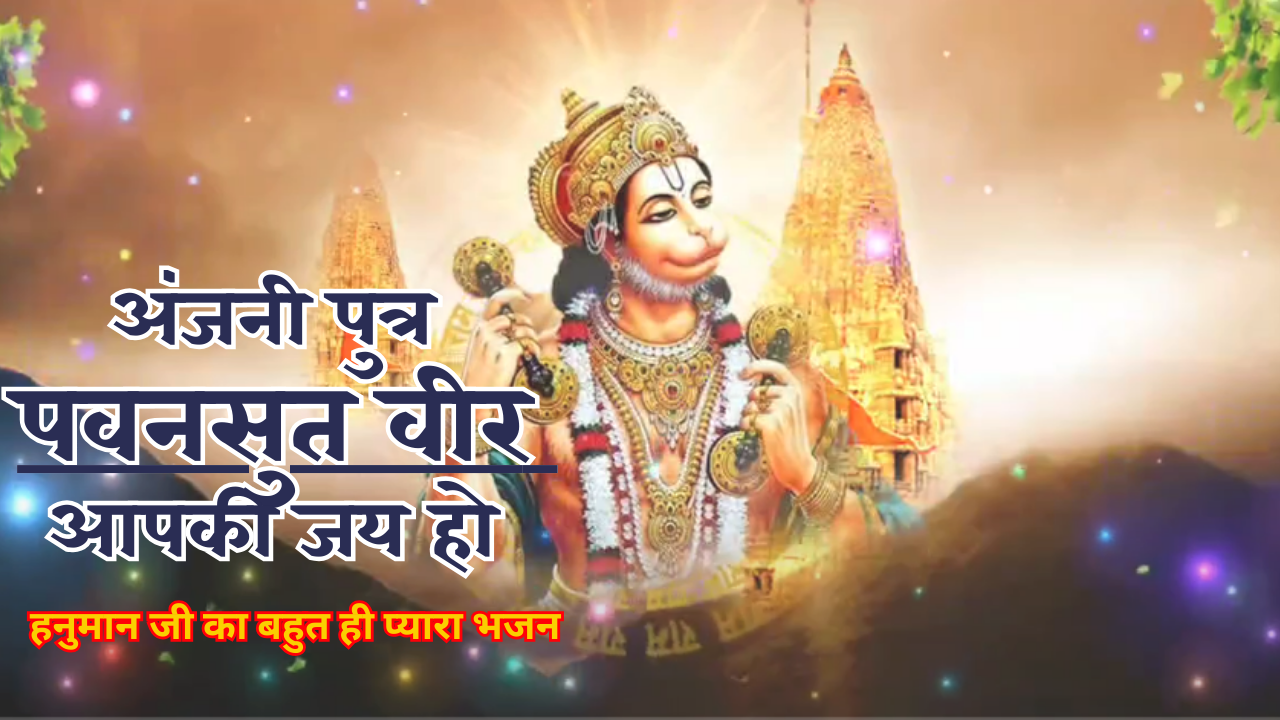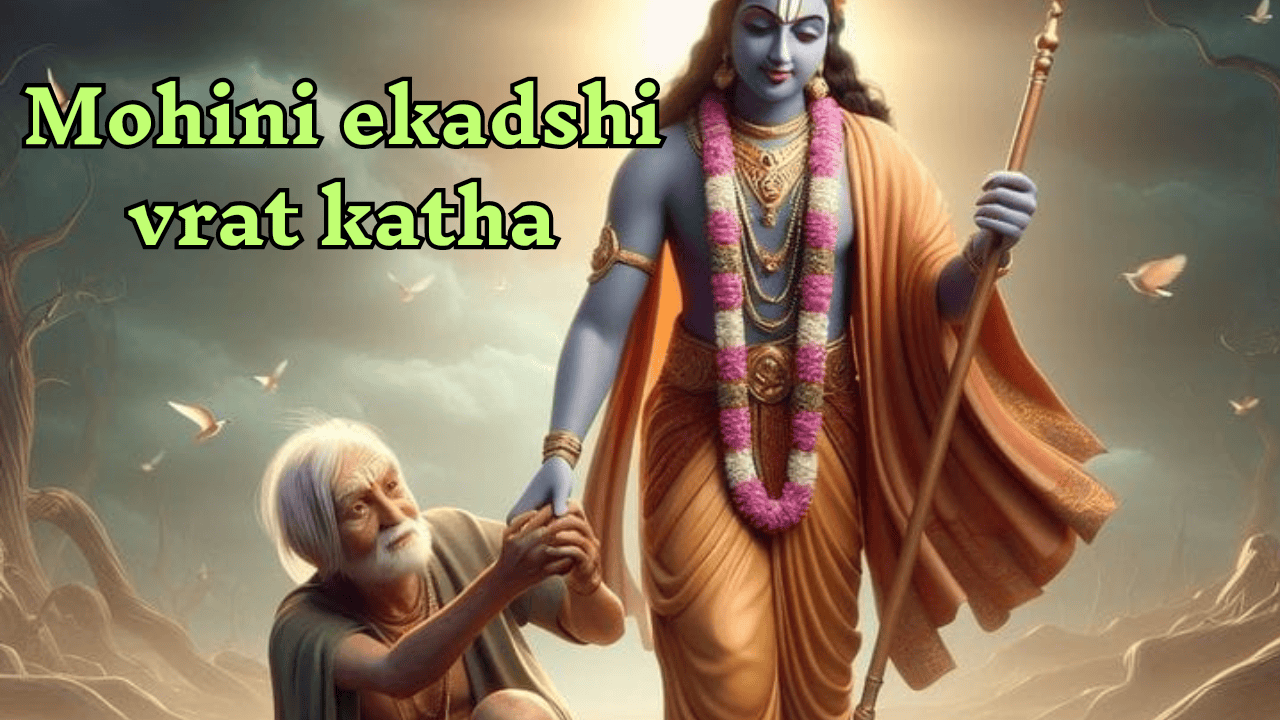Mohini Ekadashi Vrat katha in english
Let us read the Vrat Katha (story of the fast)
Dharma Raja Yudhishthira asked, “O Krishna, what is the name of the Ekadashi in the Shukla Paksha of the month of Vaishakh, and what is its story? What is the procedure for this fast? Please explain in detail.”
Lord Krishna replied, “O Dharma Raja, I will tell you a story that Sage Vashishtha once narrated to Lord Ramachandra. Once, Lord Rama asked his Guru, ‘Please tell me about a fast that can eradicate all sins and sorrows. I have suffered greatly due to my separation from Sita.’
Sage Vashishtha responded, ‘O Rama, you have asked a very good question. Your mind is extremely pure and pious. Even though merely remembering your name purifies a person, this question is good for the welfare of the world. The Ekadashi that falls in the month of Vaishakh is called Mohini Ekadashi. Observing this fast frees a person from all sins and sorrows and liberates them from the web of illusion. I will tell you its story, so listen attentively.
On the banks of the Saraswati River, there was a city named Bhadravati, ruled by a Chandravanshi king named Dyutiman. In that city lived a wealthy and virtuous Vaishya named Dhanpal. He was very pious and a devotee of Lord Vishnu. He had constructed many dining halls, water stations, wells, ponds, dharamshalas (rest houses), and planted numerous trees like mango, jamun, and neem along the roads. He had five sons – Sumana, Sadbuddhi, Medhavi, Sukriti, and Dhrishtabuddhi.
The fifth son, Dhrishtabuddhi, was a great sinner. He did not respect his ancestors or gods. He associated with prostitutes and immoral people, gambled, indulged with other people’s wives, and consumed alcohol and meat. In this way, he squandered his father’s wealth in many wicked deeds.
Due to these reasons, his father expelled him from the house. After being thrown out, he sold his jewelry and clothes to sustain himself. When everything was gone, the prostitutes and immoral friends abandoned him. He became very distressed by hunger and thirst and learned to steal.
Once he was caught, but being recognized as the son of a Vaishya, he was warned and released. However, the second time he was caught again, and by the king’s order, he was imprisoned. He was tortured severely in prison. Later, the king ordered him to leave the city.
He went to the forest and started killing wild animals and birds to eat. After some time, he became a hunter, using a bow and arrow to kill animals and birds for food.
One day, suffering from hunger and thirst, he wandered in search of food and reached the ashram of Sage Kaudinya. It was the month of Vaishakh, and the sage was returning after bathing in the Ganges. As drops of water from the sage’s wet clothes fell on him, he gained some wisdom.
He folded his hands and said to Sage Kaudinya, ‘O sage, I have committed many sins in my life. Please tell me an easy and inexpensive way to get rid of these sins.’ Hearing his humble words, the sage was pleased and said, ‘Observe the fast of Mohini Ekadashi in the Shukla Paksha of Vaishakh. It will destroy all your sins.’ Hearing the sage’s words, he was very happy and observed the fast as instructed.
O Rama, by the effect of this fast, all his sins were destroyed, and in the end, he went to Vishnuloka on Garuda. This fast destroys all illusions and sins. There is no fast greater than this in the world. Reading or listening to its glory grants the merit of donating a thousand cows.”
Mohini Ekadashi Vrat katha in English: Moral of the story
- Power of Redemption: The story demonstrates that no matter how deep one’s sins, sincere repentance and observance of spiritual practices can lead to redemption and liberation from past wrongdoings.
- Impact of Bad Company: Dhrishtabuddhi’s descent into sin was influenced by his association with immoral people. It underscores the importance of surrounding oneself with virtuous company for leading a righteous life.
- Value of Virtue: Despite Dhrishtabuddhi’s misconduct, his father Dhanpal remained virtuous and charitable. This highlights the significance of upholding virtuous principles, even in the face of challenges.
- Transformative Power of Fasting: Dhrishtabuddhi’s observance of the Mohini Ekadashi fast led to a profound transformation, illustrating the purifying and transformative effects of fasting and spiritual practices.
- Importance of Humility: Dhrishtabuddhi’s humble plea for guidance and forgiveness reflects the value of humility in seeking redemption and spiritual growth.
- Role of Divine Intervention: The story suggests that divine guidance and blessings play a significant role in one’s spiritual journey, aiding in the path to redemption and liberation.
- Impact of Sins on Life: Dhrishtabuddhi’s life serves as a cautionary tale about the consequences of sinful actions and the importance of seeking forgiveness and atonement.
- Teaching of Compassion: Despite Dhrishtabuddhi’s misdeeds, Sage Kaudinya showed compassion and guided him towards spiritual liberation, emphasizing the transformative power of compassion.
- Significance of Rituals: The Mohini Ekadashi fast is portrayed as a powerful ritual that can cleanse one of sins and grant spiritual merit, highlighting the significance of religious observances in Hindu culture.
- Ultimate Reward of Virtue: Dhanpal’s virtuous life and Dhrishtabuddhi’s eventual redemption underscore the ultimate reward of leading a righteous and virtuous life, even in the face of challenges and setbacks.
- “The greatest glory in living lies not in never falling, but in rising every time we fall.” – Nelson Mandela
- “Surround yourself with only people who are going to lift you higher.” – Oprah Winfrey
- “Virtue is bold, and goodness never fearful.” – William Shakespeare
- “Fasting is a shield, it will protect you from the hellfire and prevent you from sins.” – Prophet Muhammad
- “Humility is not thinking less of yourself, it’s thinking of yourself less.” – C.S. Lewis
- “A man’s heart plans his way, but the Lord directs his steps.” – Proverbs 16:9
- “Sin makes its own hell, and goodness its own heaven.” – Mary Baker Eddy
- “Compassion brings us to a stop, and for a moment, we rise above ourselves.” – Mason Cooley
- “Rituals are the formulas by which harmony is restored.” – Terry Tempest Williams
- “The true test of a man’s character is what he does when no one is watching.” – John Wooden


